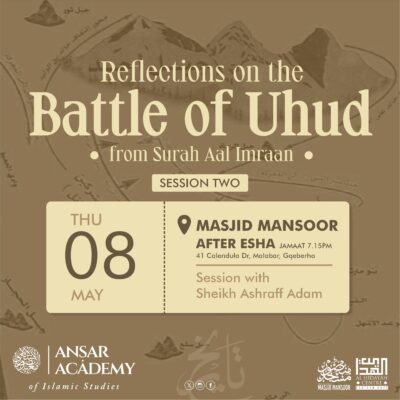Every human is in pursuit of happiness. In order to achieve this true happiness, one must understand what this emotion really is. Happiness is ‘feeling, causing, or giving pleasure’ and it is being ‘satisfied’. It is essential to understand the psychology of happiness so we know how much of it we have control over.
James Montier, in his research into ‘The Psychology of Happiness’ concluded that happiness was composed of three elements:
About 50% of individual happiness comes from a genetic set point. That is, we’re each predisposed to a certain level of happiness. Some of us are just naturally more inclined to be cheery than others.
About 10% of our happiness is due to our circumstances. Our age, race, gender, personal history, and, yes, wealth, only make up about one-tenth of our happiness.
The remaining 40% of an individual’s happiness seems to be derived from intentional activity, from actions that people can choose to do.
The main conclusion to be drawn from Montier’s research is that we can only work on the last 40% to make ourselves happier. It must be noted that this 40% cannot be achieved in pursuit of money, fame or anything else materialistic. True happiness is contentment, and this is only attained through activities which are not fleeting.
Here are five steps to make our lives happier:
- Being content with one’s lot
As humans we have no control over our genetic set-point, and hardly any control over our circumstances. This 50% of happiness in Islam is called ‘ridha bi al-qadha’ (being content with our lot in life). This means that as believers if we truly love Allah the necessary effect of it would be that we are content with our lot in life.
The Prophet sallallahu alaihi wa sallam would supplicate with words that would highlight the importance of satisfaction with our fate: “O Allah, make me content with what you have provided me, send blessings for me therein, and replace for me every absent thing with something better.” (Bukhari)
He also sought refuge from a self which is not content. (Muslim)
In dealing and coping with loss in life, the Sahaba radhiallahu anhum showed unparalleled excellence. This was due to, among other things, making peace with the decree of Allah in every situation. Once we are resigned to the decree of Allah and make peace with the situation, we will be free from crippling grief and depression.
- Satisfy your soul and not your body
The 40% of an individual’s happiness stem from actions that we choose to do. Work on activities that result in eternal happiness, that bring a smile to the heart and not merely a smile to the face. Do meaningful work; take part in activities that help the less fortunate.
“True enrichment does not come through possessing a lot of wealth, but true enrichment is the enrichment of the soul.” (Bukhari)
Bob Holmes, in an article which appeared in the Reader’s Digest of October 2004, states that money can buy a degree of happiness. But once you can afford to feed, clothe and house yourself, each extra rand makes less and less difference.
In the past half-century, he wrote, average income has skyrocketed in industrialized countries, yet happiness levels have remained static. Once your basic needs are met, money rarely seems to boost happiness.
There is a way in which money can buy happiness, though. Once a person spends money in helping others, this charity has positive effects on his own happiness:
- Charity
There is a Chinese saying that goes: “If you want happiness for an hour, take a nap. If you want happiness for a day, go fishing. If you want happiness for a year, inherit a fortune. If you want happiness for a lifetime, help somebody.” For centuries, philosophers have suggested the same thing: Happiness is found in helping others.
In a study on charitable giving using fMRI technology, when people donated to a worthy cause, the midbrain region of the brain lit up. This is the area of the brain that is responsible for our cravings and pleasure rewards, showing the link between charitable giving and pleasure.
People who give money to charity tend to be happier and also healthier than others, said Elizabeth Dunn, a psychology professor at the University of British Columbia in Canada.
“All created beings are the dependents of Allah, and the most beloved of creation to Allah is the one who is good to His dependents.” (Bayhaqi)
- Faith in Allah Ta’ala
Nothing can make us happier than seeking the pleasure of Allah. Of the dozens of studies that have looked at religion and happiness, the vast majority have found a positive link. Chelsea Ritschel details in an article that “countless research has shown that as a group, religious people are happier than people who don’t rely on their faith.”
A study by the Pew Research Centre found that religiously active people, people who acknowledge God, are typically happier than adults who either do not practise a religion or do not actively participate in one.
Allah Ta’ala outlines the link between faith, good deeds and a good life: “Whoever, male or female, does good work, while being a believer, We shall certainly make him live a good life, and shall give such people their reward for the best of what they used to do.” (Quran 16:97)
- Cut out greed
Do not look towards celebrities, rich or affluent people above you in worldly matters. “Look at those below you (less fortunate than you), and don’t look at those above you, for this is better.” (Muslim)
How much stuff do you need to feel good? In the 1980s, political scientist Alex Michalos, professor emeritus at the University of Northern British Columbia in Prince George, asked 18,000 college students in 39 countries to rate their happiness on a numeric scale. Then he asked them how close they were to having all they wanted. He found that the people whose aspirations soared furthest beyond what they already had, tended to be less happy than those who perceived a smaller gap.
This “aspiration gap” might explain why most people fail to get much happier as their salaries rise. Instead of satisfying our desires, most of us merely want more. In surveys by the Roper polling organization over the last two decades, Americans were asked to list the material possessions they thought important to “the good life.” The researchers found that the more of these goods people already had, the longer their list was. The good life remained always just out of reach.
The Prophet sallallahu alaihi wa sallam said, “If the son of Adam had a valley full of gold, he would want to have two valleys. Nothing fills his mouth but the dust of the grave, yet Allah will relent to whoever repents to him.” (Bukhari 6075)








COMMENTS